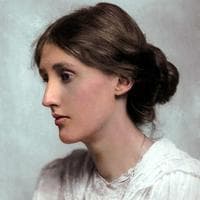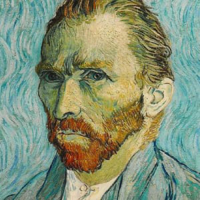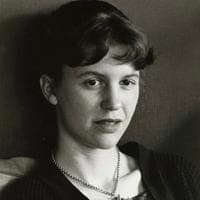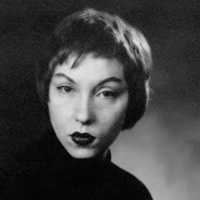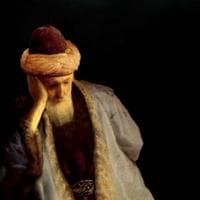{{ชื่อ}} ประเภทบุคลิกภาพ MBTI
บุคลิกภาพ
"Virginia Woolf ประเภทบุคลิกภาพประเภทใด Virginia Woolf เป็นประเภทบุคลิกภาพ INFP ใน mbti, 4w5 - sx/sp - 459 ใน Enneagram, RLUEI ใน Big 5, EII ใน Socionics"
▬ According to IDRLabs: "Agreeableness refers to an individual’s level of niceness and amiability when socializing. High scorers take a genuine interest in others and are mild, kind, and considerate. They are naturally compassionate and thoughtful, and have a tendency to seek cooperation over competition. Those with lower scores can be seen as cynical and self-serving, and are typically less interested in the well-being of others. Agreeable people are therefore usually better liked than disagreeable people." • They go on to list its Subtraits: Trust; Earnestness; Altruism; Cooperation-Compliance; Modesty and Sympathy-Compassion. ➨ Virginia considered herself quite egotistic. As she loathed this quality in others (& was quick to criticize them as she spoke with her intimates – mostly Vanessa), she nurtured and condemned it in herself. ➨ Most people considered her aloof, condescending and snobbish. Of course, chances are these adjectives could have just been projections on their parts, but it highlights people's perception of her. ➨ She was very selectively compassionate, which again, highlights the Fi's discriminatory nature. Didn't trust much, and could be quite scathing in her judgements and portrayals of people, especially those she didn't like. ➖➖➖ On her conscientiousness: ▬ IDRLabs: "Conscientiousness denotes the degree to which an individual organizes their pursuits. High scorers are characterized by orderliness, planning, and control. They have a tendency to steer clear of danger and risk, and their successes in life are often related to their knack for perseverance and planning. People with lower scores are more inclined to “let tomorrow take care of itself,” and can thus be thought of as more spontaneous and impulsive." • They go on to list its Subtraits: Self-Assurance; Orderliness; Dutifulness; Achievement-Striving; Self-Discipline and Prudence. ➨ It's somewhat tricky, I'll admit: while she tried to be consistent in her writing and diary entries, nothing else in her life was rather "structured." ➨ It was rather an exercise on her part to see how much she could stick to her diary entries. She was a voracious reader, though. Don't know why I mentioned this, felt the need to. • At the moment, I'll place her in the middle, leaning toward her not being quite as orderly. It seems that in regards to her Big SLOAN, RLOEI or RLUEI are more fitting than RLOAI. ➖➖➖ Some notes: ➨ Virginia took a very personal attitude toward her interactions with life and people, and this fits with the Fi/Te axis. This contrasts with the Ti/Fe axis that takes a transpersonal attitude toward its interactions with life and people. This is because the Fi/Te axis individuates people and ethics, while taking a collective approach to logical systems, as opposed to the Ti/Fe axis that individuates logical systems while taking a collective approach to people and ethics. Where the Ti/Fe is universalist, the Fi/Te axis is discriminatory. Virginia was very much on the Fi/Te axis. • This eliminates the INTP & the INFJ. ➨ V. Woolf's major priority in her life was to seek and find an individual / personal truth. • She spent her life trying to reconcile her internal emotions / sense of self-identity / ideologies / values with her external environment. Her diaries, most of her essays (and even her books) are testament to that. She was constantly tinkering with her perception of the self / her ideologies; constantly reconciling her past experiences with her present. • A lot of her psychological energy was directed toward deconstructing the ideologies around her. • It was a running theme for Virginia to stand apart from the group to preserve her sense of ideological / ethical / emotional purity. [These are congruent with the INFPs fluid Fi-Si]. ➨ Ne in the INFP's auxiliary slot, presents a psyche whose ideation is divergent. Amongst other things, they can be quite verbal, given that the Ne is a very verbal and multifaceted function: as such, the INFP brainstorms out loud, talks through ideas and could seem to ramble quite a bit. These were remarkably apparent in V. Woolf. ➨ V. Woolf's ideational explorations (Ne) were done in service to an Fi agenda. Results, as selected by the Fi, were deeply solidified by Si, which were reflected in how meticulous and certain she was with them. • It seemed that in Virginia, Ne-Te served as tools in service to an active Fi-Si. From what has been said of (& written by) V. Woolf, her cognitive structure seemed most similar to that of the INFPs.
ชีวประวัติ
Adeline Virginia Woolf (née Stephen, 25 January 1882 – 28 March 1941) was an English author, primarily known for her novels and literary criticism. She is considered part of the Modernist movement. The daughter of a model and a respected historian, Virginia began to suffer nervous breakdowns in her teenage years, following the death of her mother and younger sister. Following the death of her father, she became the centre of a group of writers and artists known as the Bloomsbury group and married Leonard Woolf in 1912. Woolf's first novel was published in 1915, and during the 20s her works became well-known for their unusual style and supposedly scandalous content. Woolf was also a prominent critic, attacking writers such as H.G. Wells for favouring utilitarian concerns over aesthetic ones, and also writing extensively on the role of women in fiction and academia. Woolf suffered from bipolar disorder throughout her life and committed suicide in 1941.
บุคลิกภาพ correlate
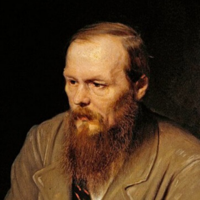
Fyodor Dostoevsky
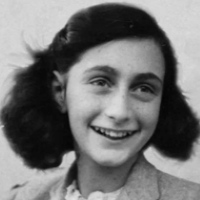
Anne Frank
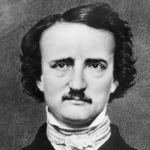
Edgar Allan Poe

William Shakespeare
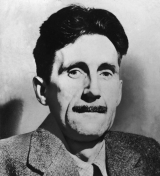
George Orwell
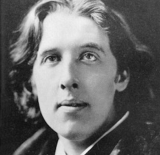
Oscar Wilde
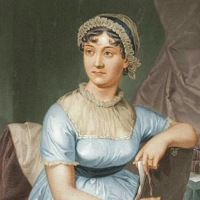
Jane Austen
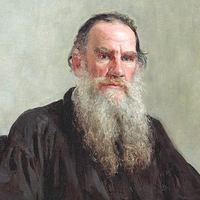
Leo Tolstoy (Лев Толсто́й)
